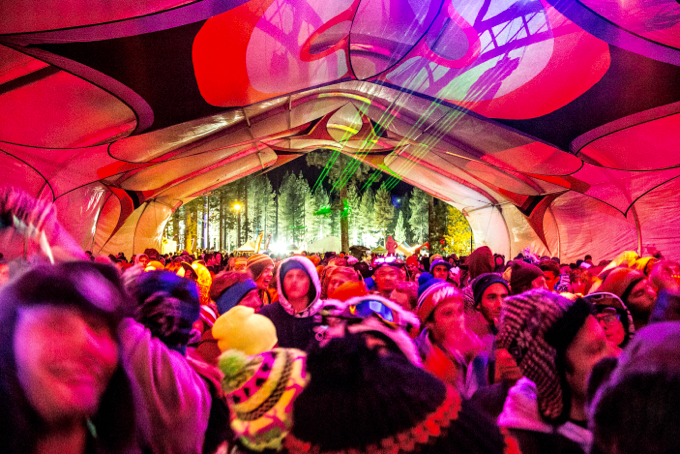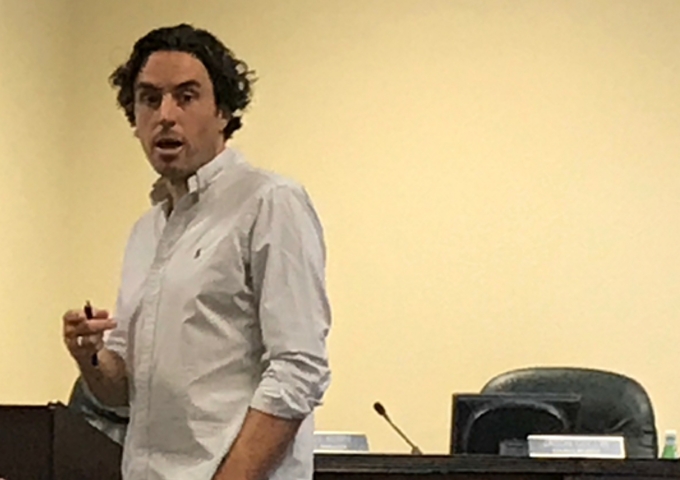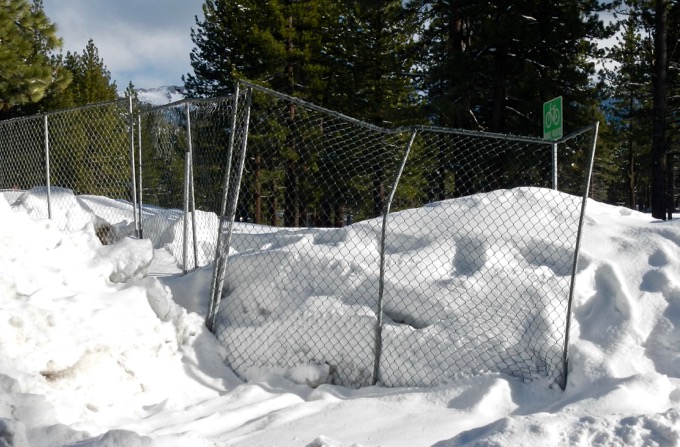SLT council wants 10-year contract for SnowGlobe

SnowGlobe will be under contract through 2028 when the deal is finalized. Photo/Lesia Witkowsky
By Kathryn Reed
SnowGlobe, the three-day controversial music festival, is going to be part of the South Shore lexicon for another decade.
The South Lake Tahoe City Council on Tuesday agreed to several details in what will be a long-term contract with Chad Donnelly, who first brought the electronic, mostly disc jockey produced bass-centric music event to the area in 2011.
Donnelly had a cadre of people at the Aug. 15 meeting to talk economics, sound and trash.
The current contract with the city and SnowGlobe goes through 2018. This new one would start in 2019. It will be for five years, with the potential for another five years. Donnelly wanted 10 years with two five-year extensions.
“We will never give up the annual reviews. There is always an out clause if the measures are not met,” City Manager Nancy Kerry told the council.
Exact performance measures will be brought to the council at a later date for approval.
Lake Tahoe Community College is an integral player, and without that board’s approval the city’s desires would be quashed. The college board is expected to take up the issue on Aug. 29. It has always had a year-to-year contract. Until last year the field where the soccer teams play was the venue, with the gym as the “green room.” (In 2016, the new community field which was just dirt was the venue site.)

Chad Donnelly, SnowGlobe promoter from Colorado, has made millions off the South Lake Tahoe festival. Photo/LTN
“I did meet with Chad and city staff (Monday) and the proposal addresses many of the concerns raised by LTCC, but I think it is still imperfect as it is currently presented,” LTCC President Jeff DeFranco told Lake Tahoe News.
The college was less than thrilled with how long it took to remove all of the infrastructure from campus this year, with it looking trashy as the snow started to melt.
At the council meeting Donnelly blamed one vendor, said it wouldn’t happen again, but didn’t give specifics how that would be prevented.
It’s likely Bijou Park will become a part of the event for parking or bus drop offs.
The promoter said with a long-term contract he will be able to invest in infrastructure that will help protect the field and reduce sound issues. A commitment was also made to do a better job of cleaning up trash that attendees leave in neighborhoods.
Multiple times Donnelly equated his event to Coachella in Southern California. That three-day spring music festival went from 99,000 people to 125,000 this year with the addition of 46 acres.
Councilwoman Wendy David reminded him that Coachella is in the middle of a field, whereas SnowGlobe is in the middle of a residential area.
SnowGlobe attracts almost 20,000 each of the three nights. At the meeting Tuesday Donnelly said he had no interest in attracting more people, just making it better. However, in his written material that was part of the agenda packet it calls for 27,000 people in 2024, which is what revenues are based on. (That’s a 35 percent increase in the number of attendees.)

Damaged chain link fences remained for months after SnowGlobe 2016. Photo/LTN
Other aspects of the deal include the city’s agreeing to not allow another electronic music promoter to have an event at the new ball field either 60 days before or after SnowGlobe. (SnowGlobe is always Dec 29-31.) Donnelly doesn’t want a competitor eroding his profits.
Jesse Walker with New Economics Advisory went over an economic report he did from SnowGlobe 2016 that Donnelly paid for. The data he dissected was based on surveys that SnowGlobe employees conducted.
Walker concluded the financial impact was $11.4 million to South Lake Tahoe, with direct spending by concert-goers $6.1 million. They account for 50,785 room nights. (People tend to stay four nights.) On average each attendee spends $123/day, which does not include the price of the ticket. Sales tax revenue was $52,152 and transient occupancy tax $403,465.
(Stateline recorded 9,248 visitor nights, $10,646 in sales tax, $95,515 in TOT, $1.9 million in direct spending, with an overall economic output of $2.8 million.)
A big change with the long-term contract is the distribution of money. The city currently pays Donnelly $50,000. The new contract won’t have that deal. In fact, Donnelly’s proposal calls for the city’s contribution to go away starting this December and paying South Lake Tahoe a one-time $25,000 signing agreement.
Still to be worked out is if the city will be receiving a percentage of ticket sales or a set fee per ticket.
Taylor Storms, who is a co-founder and principal of Orkila Capital, was at the meeting as part of Donnelly’s financial team. His proposal is a graduated fee of 50 cents to $1.25 to be added to tickets that would be a pass-through to the city that has an estimated value of $11,000 to $33,750.
“This is separate from fixing the field or mitigating sound,” Storms said. “Our intent is if the field is damaged, we would fix it.”
The sod isn’t even in the ground, which is a concern of the entire council. That won’t happen for another month.
“We will be 100 percent responsible for the damage that occurs,” Donnelly said.
Besides the money, the council likes that this event is in essence an insurance policy against the weather. It means people are coming to town no matter if there is no snow. Plus, it brings a different demographic to the region. The festival also has made the hoopla at Stateline almost non-existent, which means less of an ordeal for law enforcement.